Have you noticed wild rabbits foraging in your yard during the winter months? Do you want to feed them but aren’t sure how? It is critical to provide food for wild rabbits. They don’t have access to the same food as your pet bunnies. The question is, “What to feed wild rabbits in winter?”
Should you feed wild rabbits during winter?
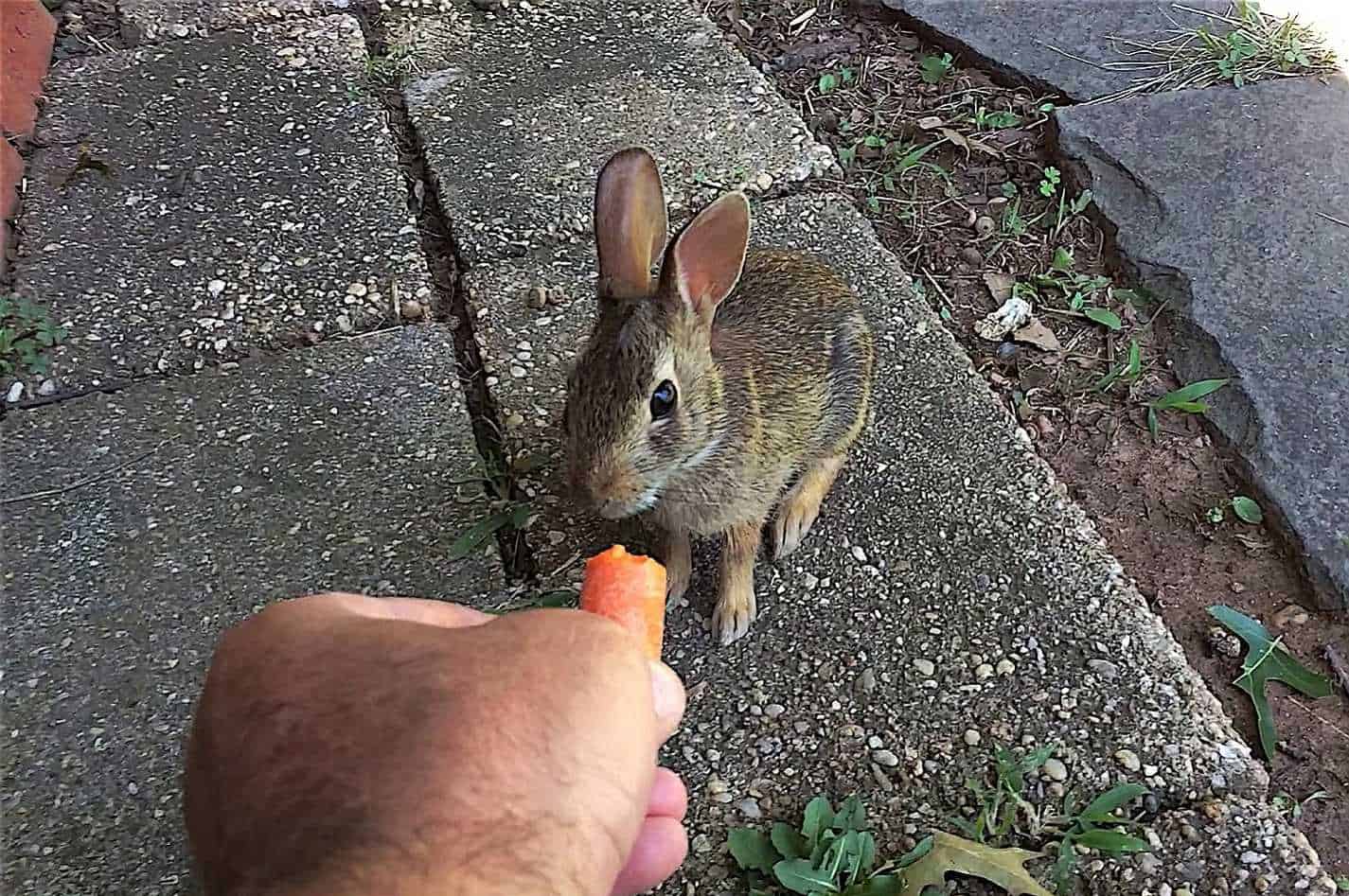
Many consider wild rabbits to be pests. They are always on the lookout for them because they wreak havoc on gardens or yards.However, people who adore bunnies, whether wild or domesticated, always have a deep connection with them.
In any case, you may need to feed wild rabbits in extreme circumstances. Natural food is sparse, such as during the dead of winter. However, do not feed wild bunnies directly. They will grow dependent on humans.
So, use caution if you come across a wild bunny. You should feed it rabbit-safe food, especially if it is sick.
What foods can you offer wild rabbits?
Rabbits in the wild are natural scavengers. They swiftly change their dietary routines when they don’t have access to their favorite foods like hays and leaves throughout the winter.So, they then eat the leaves, bark, and buds of trees and plants. However, they can’t eat these low-nutrient foods for the rest of the winter months.
Here are specific foods you can give wild rabbits during wintertime:
Hay
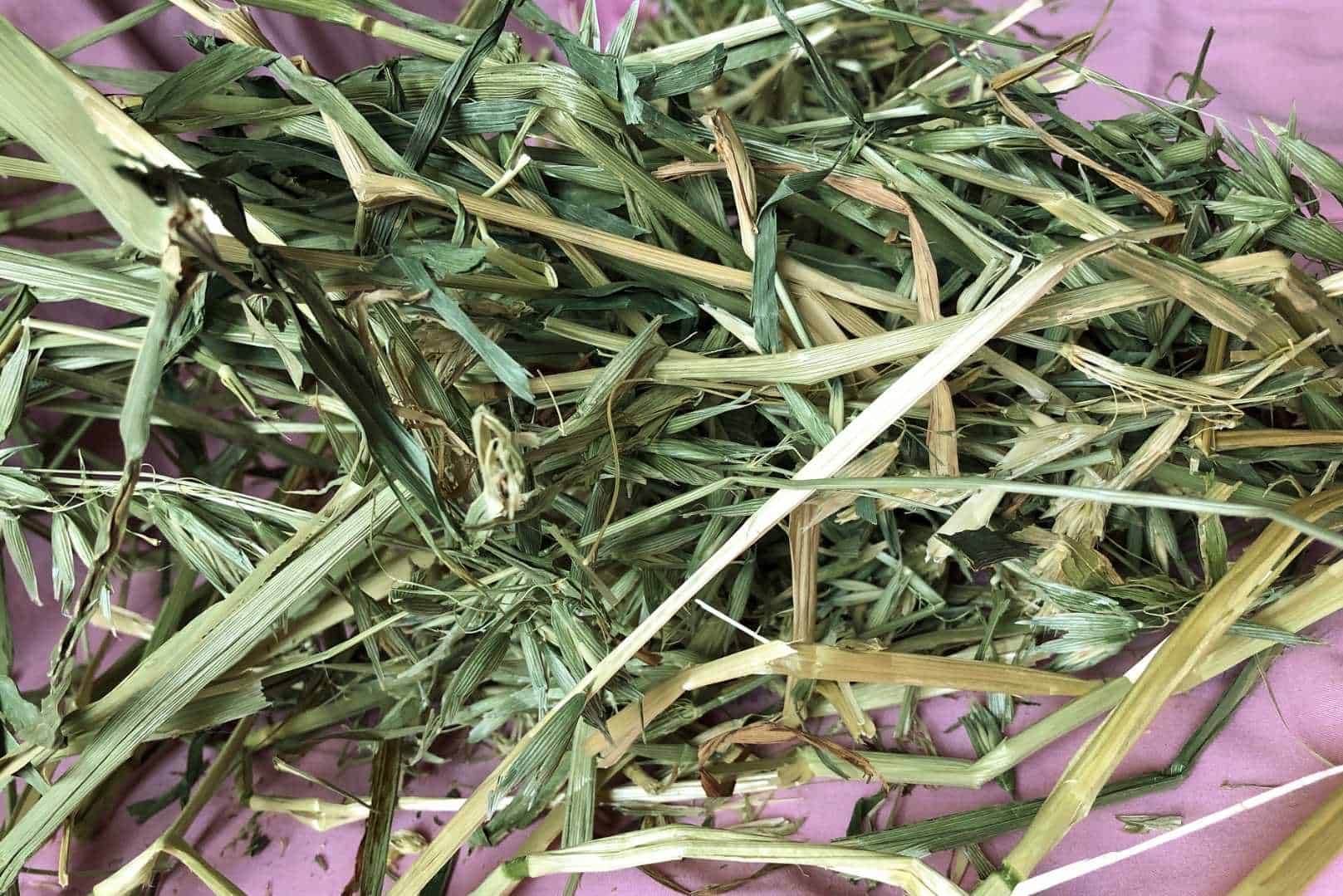
Hay is the best food that you can give to wild rabbits. Most of them are wary of receiving food from humans, but hay is something they’re used to. It’s safe and a favorite of theirs.Hay makes up the majority of a bunny’s diet. It provides the necessary fiber to keep its intestines moving. It also makes their teeth healthy.
Here are feeding hays you could tender to wild bunnies:
Timothy Hay
Timothy hay is a popular choice among rabbit keepers. It can give a high-fiber foundation for a bunny’s diet. It contains 32-34% fiber, 8-11% protein, and 0.4 – 0.6% calcium, for a nutritional balance.
This hay thrives in colder environments. It’s fibrous and thick, making it a wonderful option for bunnies with sensitive stomachs. It’s also great for adult rabbits because of its low calcium concentration.
Orchard Hay
Orchard hay, also known as orchard grass, is another good food for bunnies. It has 34% fiber, 10% protein, and 0.33% calcium balance.
This hay also has a lovely scent and a smooth texture. A picky bunny may prefer this hay over other hay types.
Oat Hay
Oat hay is rich in vitamins, minerals, and fiber. It also contains lots of crunchy husks that many rabbits enjoy. This is low protein hay, so the rabbits can enjoy it as much as they like. You can also mix it with other types of feeding hay.
Fiber, vitamins, and minerals abound in oat hay. It also has a lot of crispy husks, which many bunnies love. The bunny can eat it as much as it likes because it’s low in protein.
Meadow Hay
Meadow hay isn’t hay at all. It’s a blend of meadow grasses that have been kiln-dried. Each batch of this hay contains a unique mix of grasses. So, the calcium and protein composition may vary. Simply offer it in moderation.
Alfalfa Hay
Alfalfa hay is categorized as a legume. So, it provides more protein than grass or hay. It can be fattening for adult bunnies due to its higher protein concentration. However, you can offer it to developing kits that need to gain weight.
Pellets
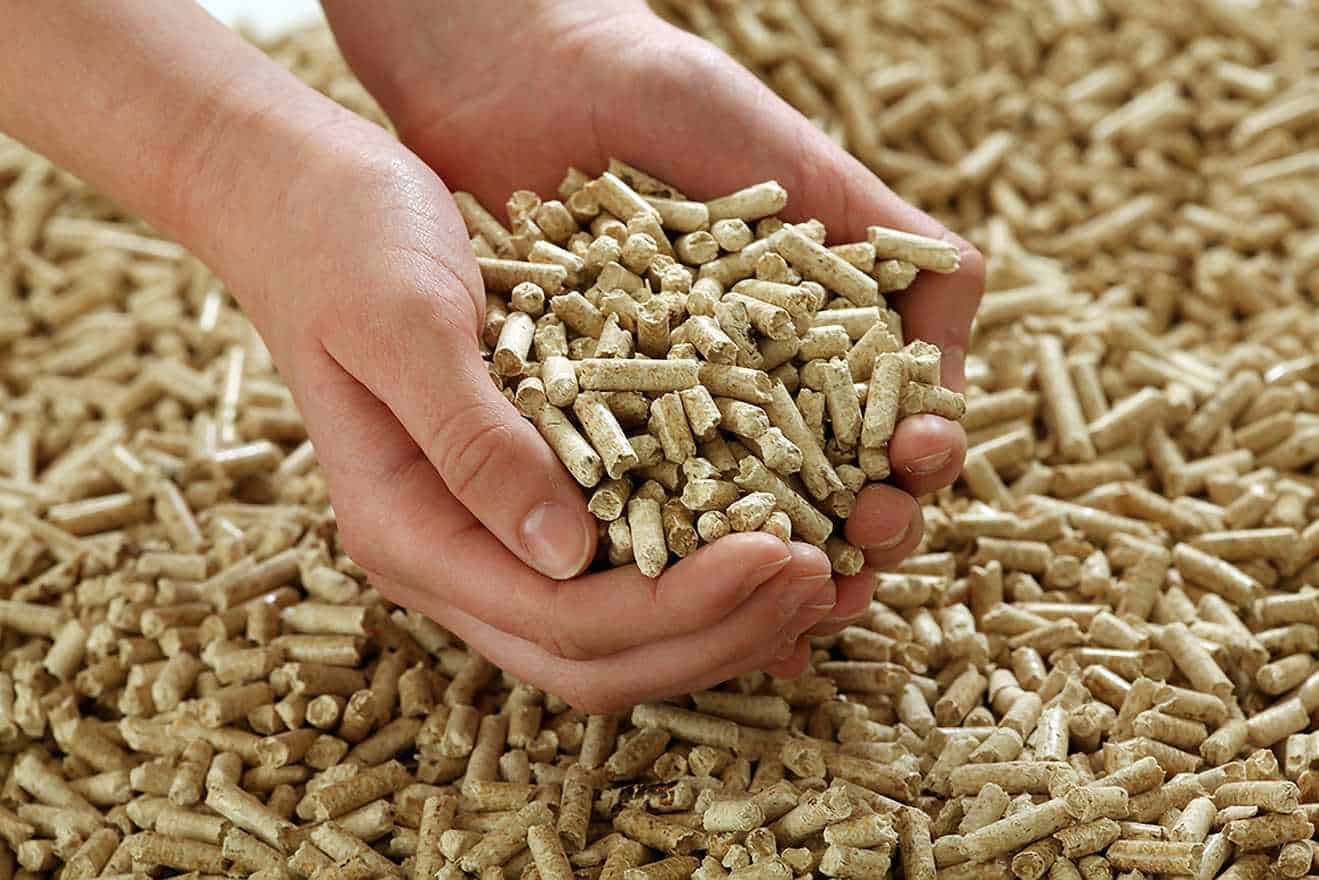
Rabbit pellets found online and at pet stores are calorie-dense. They include the majority of the nutrients that bunnies require. These pellets are safe to eat for wild rabbits. They may make it through the winter with just a tiny amount of rabbit pellets.
Rabbit pellets are also beneficial to breastfeeding rabbits. It can help them produce enough milk for their young. However, do not feed pellets directly to baby bunnies. Kits can only take their mother’s milk until a particular age.
Grains
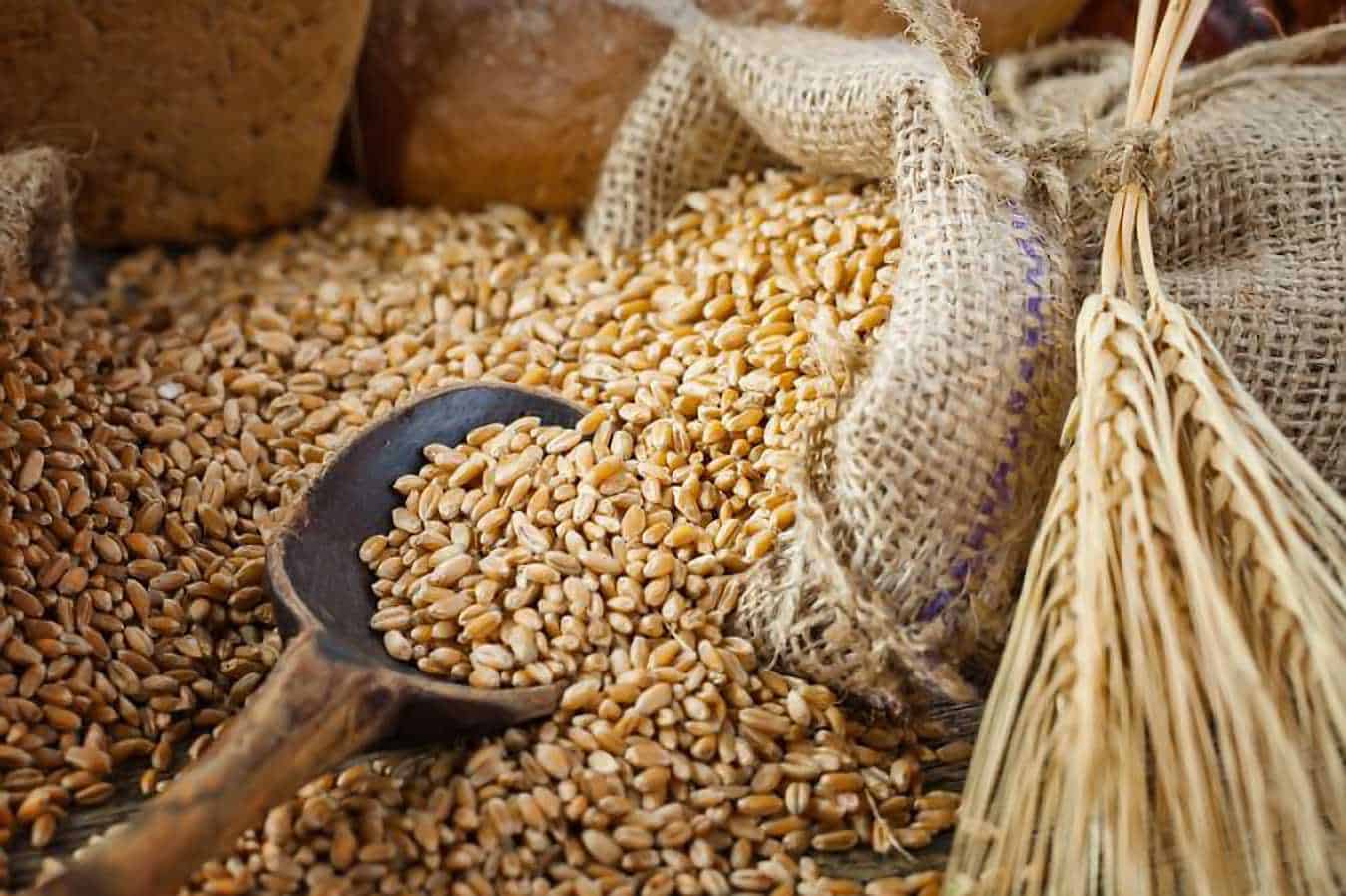
Grain attracts mice, squirrels, and other pests. So, check the environment before offering grains. You may use a hay feeder to feed grains to a wild rabbit.
Vegetables
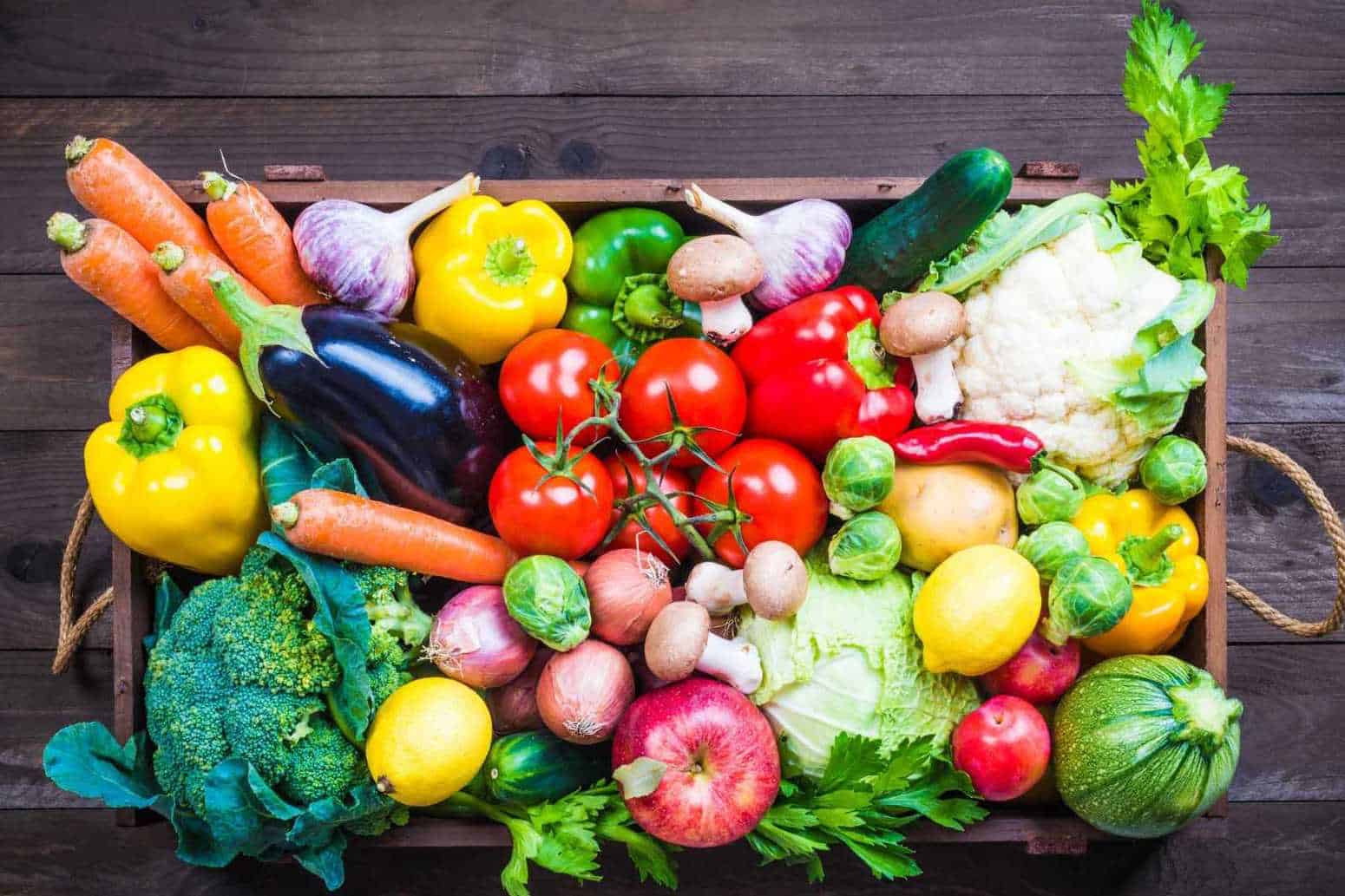
Veggies are the most typical domestic food wild rabbits can consume. Rabbits are all herbivores, so they eat a large number of plants. Fresh veggies are more readily available than hay and pellets in most areas. They also supply essential nutrients. These can help wild bunnies survive the winter season.
Don’t give too many veggies at once. Make sure they are fresh. Canned veggies may have high sodium content, which is harmful to bunnies. Carrot is the bunny’s favorite among veggies. However, do not provide several carrots at once. It may cause digestive issues like bloating.
Fruits
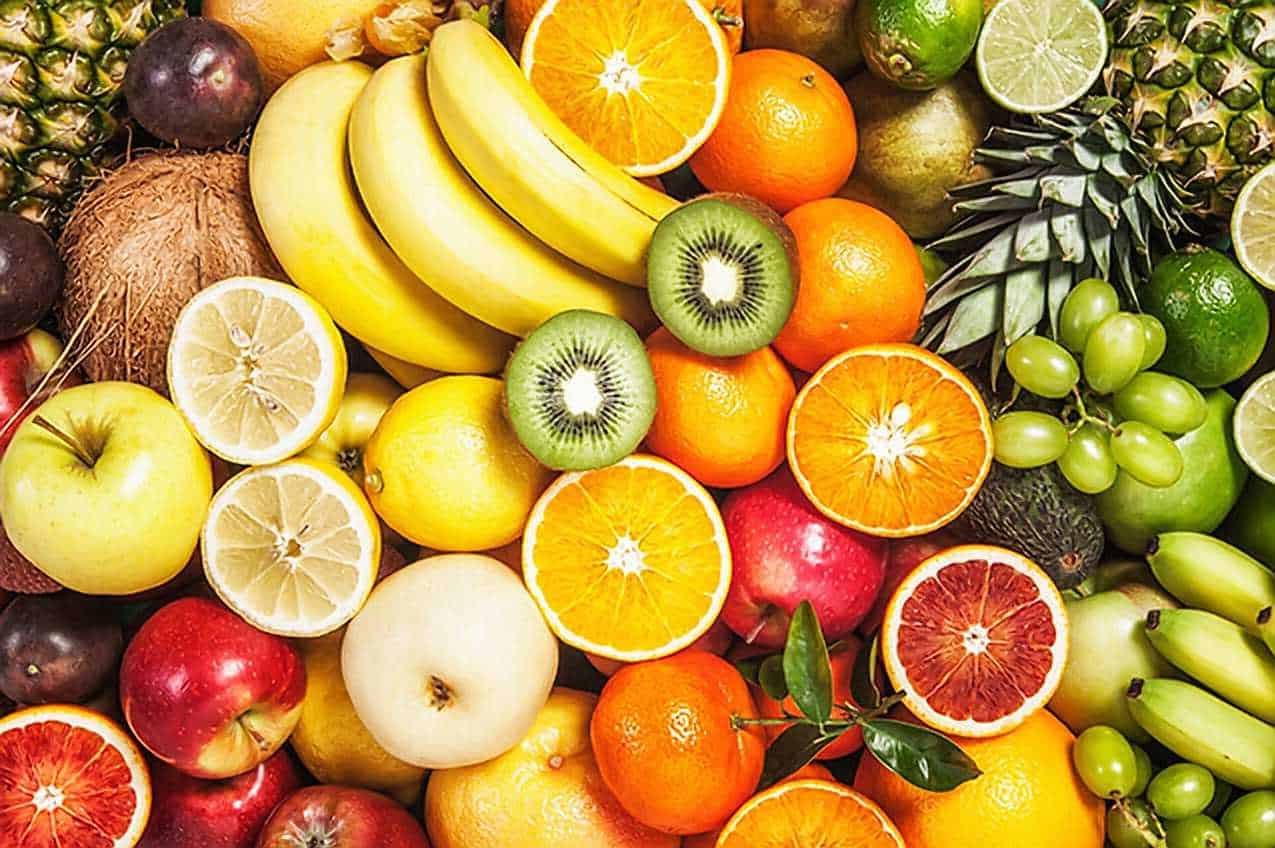
Wild rabbits do not eat much fruit in their habitats. However, fruits can provide calories to help them survive when food is scarce.
Fruits should never constitute a significant part of a wild bunny’s diet. Buy fruits in the season because they are more nutritious and less expensive. Remove any seeds or pips that could get trapped in a rabbit’s throat.
Most fruits are high in sugar, which is bad for bunnies. Sugar promotes obesity and impedes digestion in the long term. But fruits also offer vitamins and minerals, so a little can help.
You can serve wild bunnies with various berries like strawberries and raspberries. You can also give other fruits such as plums, papaya, and pineapple. You can also offer them bananas, but don’t give them too many at once. One slice is good enough for rabbits.
What food should you not offer to wild rabbits?
Wild bunnies love to forage. However, their unique digestive mechanism cannot digest everything from your home. Some foods that are typical in your diet may be hazardous to these tiny bunnies.
Their stomach cannot digest basic kitchen ingredients like cereals, yogurt, and cookies. They cannot also take in fish, poultry, and other processed meats.
How much food should you give wild rabbits per day?
Wild rabbits eat tons of food when it’s available. They require approximately 300 calories every day. Fresh grass makes up a significant portion of their nutrition. They eat less in the winter due to food scarcity.
You can offer wild bunnies 2-3 cups of a diet mixture. This can include hay, rabbit pellets, veggies, and fruits. That would be sufficient to help them to live.
How should you feed wild rabbits during winter?
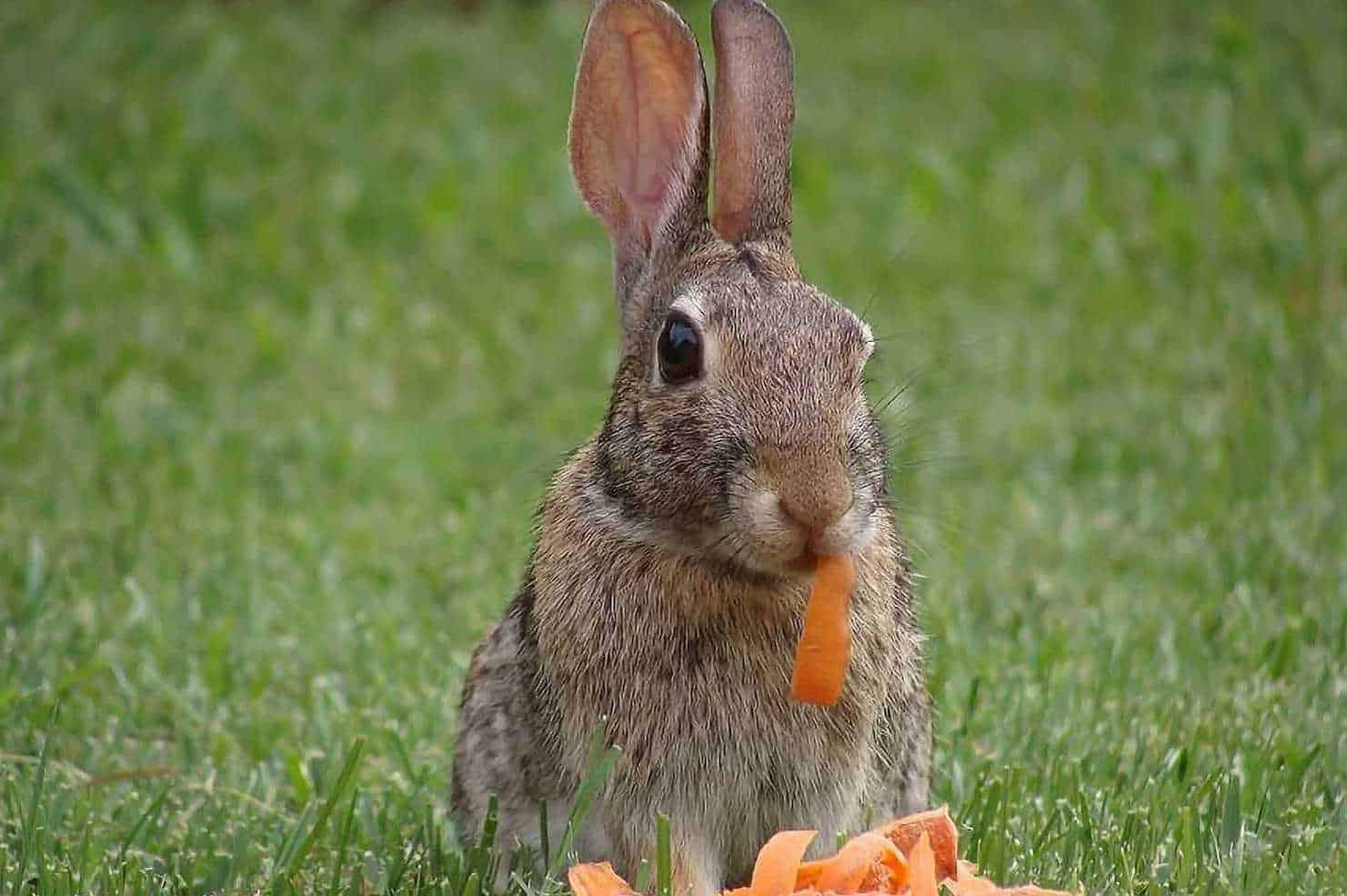
Wild bunnies usually get frightened of humans. They scamper to their burrows once they see them coming. They’re probably thinking you’re trying to capture them. Feed wild bunnies without making them feel insecure or attacked. Here’s what you can do:
Step 1: Designate a specific feeding location
Select an area where you’ve spotted wild bunnies before. You can check around bushes or shrubs in your yard. You can also choose a grassy portion in your yard. Don’t bother the wild bunnies if they eat the leaves or grass. Don’t spray pesticides that can harm the wild bunnies.
Step 2: Leave the grass, weeds, or wildflowers to grow in the area you’ve picked during summer
Do not cut all the grass in the area. The grasses can make the rabbits feel like they’re in their natural habitat. Stack branches or twigs that fall in this location during the winter.
Step 3: Watch out for other wild animals
Stay alert for any other wild animals that might wander in and eat food for the wild bunnies. They could be a threat to the wild bunnies and an unwanted guest to your property.
Step 4: Keep out from the burrows when you’re not offering food
The rabbits will learn that you are not a threat in this manner. They will eventually come out and eat the food that you provide.
Step 5: Don’t attempt to attract wild bunnies to your home with food
Wild bunnies are wild animals. Treat them as such. They can cause damage to your structures and also carry diseases that can be harmful to your family and pets. Provide them food at a safe distance.
How can you feed a wild baby rabbit during winter?
You should check if a wild baby bunny is an orphan before feeding it. Baby bunnies occasionally begin exploring their surroundings. So, they may come to your yard, particularly during the daytime.
Adult bunnies usually spend their days outside their burrows, foraging for food. Mother rabbits breastfeed their kits at night or dawn.
Contact your local wildlife rehabilitation facility if you determine that the newborn bunny is an orphan after careful observation. If you don’t have access to a rehabilitation center, you can provide the wild kit yourself.
Warm up the newborn rabbit first if it is cold. Place it in an enclosed space, such as a shoe case with a clean rag inside. Put some hay for its beddings. Goat milk is the best option to feed the orphaned baby bunny. You can buy goat milk from grocery stores.
Feeding the young bunny can be challenging due to its size. You can use a syringe to feed it. You can get it from a pharmacy. Heat the goat milk. Ensure that it’s clear of bacteria. Let the milk cool until you can touch it with your hand. Gently administer the warm milk to the kit using a syringe.
Summary
Wild bunnies often have difficulty finding food during the winter. This can make it challenging for them to survive the winter months. So, feed a wild rabbit that wanders into your yard. You may be wondering what to feed wild rabbits in winter. Make sure you only offer rabbit-safe foods.
I live at 6000 ft with lots of snow this year. We put out rabbit pellets and veggies on the porch for the four cottontails that reside around us. We also have a hanging bird feeder and tray for seed and suet bars for the sparrows, finches, quail, dove, and jays that visit. The ground squirrels sometimes help themselves to the seed and peanut butter bird mix as well, to keep up their fat supply for winter. Most are used to us watching through the glass now!
And they look healthy! Very satisfying and enjoyable!
Thank you for sharing your experience of feeding wild rabbits during winter. It is important to provide them with a source of food during the colder months when natural food sources may be scarce. Rabbit pellets and veggies are a great choice for wild rabbits as they contain essential nutrients that they need to survive.